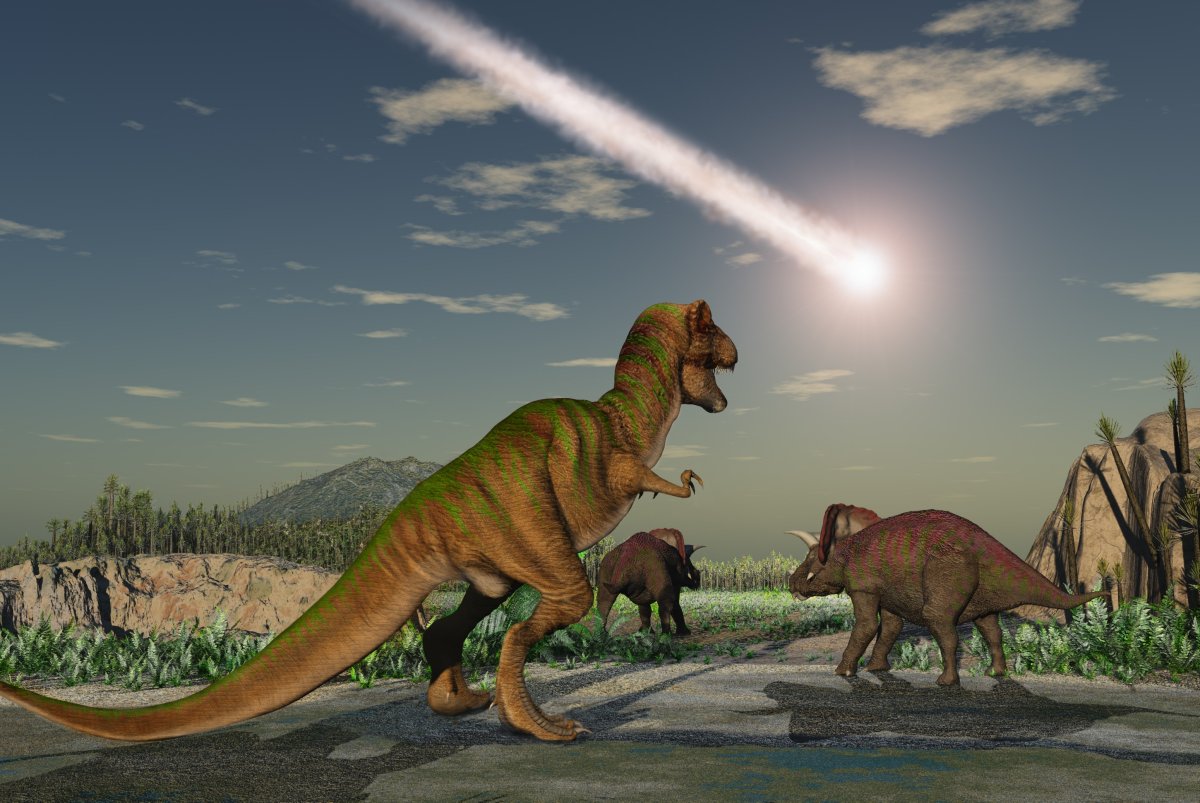Scientists have discovered the fossils of two new species of sturgeon fish in the Hell Creek Formation of North Dakota that were likely buried when the dinosaur-ending Chicxulub asteroid hit Earth.
The finding sheds light on the history of freshwater fish in North America in the Late Cretaceous period, which is poorly represented in the fossil record.
It also indicates that the massive effects from the Chicxulub asteroid, which hit off the Yucatan coast in southeastern Mexico, were felt as far away as North Dakota.

The Hell Creek Formation is a rock formation that covers parts of North Dakota, South Dakota, Montana and Wyoming that is known for holding many fossils from the Cretaceous period, which lasted from 145.5 million to 65.5 million years ago and ended with the extinction of the dinosaurs.
Fossils found there include the remains of plants, dinosaurs and small mammals from that period, including early primates, according to the encyclopedia Britannica.
Within the Hell Creek Formation is the Tanis site, which contains a large number of well-preserved fish fossils and is thought to have been formed immediately after the Chicxulub impact.
In a study published on October 3 in Journal of Paleontology, two researchers, Lance Grande, the Negaunee Distinguished Service Curator at The Field Museum in Chicago, and Eric Hilton, a professor at the Virginia Institute of Marine Science, described four sturgeon fossils from two species that were found at the site and have been studied for several years.
In contrast to most known sturgeon fossils from the Cretaceous period, which are represented only by fragments of bone or poorly preserved partial skeletons, the four found at the Tanis site are well preserved and consist of skulls and other connected bones.
Sturgeons are a type of fish that have existed for 200 million years and are sometimes referred to as "living fossils." The sturgeon family Acipenseridae and the paddlefish family Polyodontidae are the only surviving families of Acipenseriformes, a group of ray-finned fish. As such, the Acipenseridae sturgeon family has been the subject of substantial interest.
"The fishes that we described were so well preserved because they were probably buried alive or at least immediately after death," Grande told Newsweek. Therefore the bones are all still articulated with each other in the fossil specimens.
"The asteroid may have had something to do with it, since the cataclysmic burial may have been the result of a huge tidal surge resulting from the impact. Some scientists have even reported residue from the actual asteroid impact preserved in the gill regions of some specimens."
The two sturgeon species identified from the fossils have been named Acipenser praeparatorum, with "acipenser" meaning sturgeon and "praeparatorum" meaning to make ready, and "Acipenser amnisinferos," meaning sturgeon from Hell's Creek, Live Science reported.
Grande said the fossils add to our understanding of freshwater fish just prior to the great dinosaur extinction event, which are not well represented in the fossil record.
"This may be due to an initial lack of fossilization of freshwater sediments to begin with in North America, or it may be due to the erosion of them where they once occurred over the last 65 million years," Grande said. "And with fishes, if the sediments are not preserved, the fish that died in them were also not preserved."
The expert added that the sturgeon fossils also indicate that at the time of the asteroid impact, "massive effects were felt as far north as North Dakota."
The asteroid that killed the dinosaurs is thought to have destroyed about 75 percent of all species living on Earth at the time.
Uncommon Knowledge
Newsweek is committed to challenging conventional wisdom and finding connections in the search for common ground.
Newsweek is committed to challenging conventional wisdom and finding connections in the search for common ground.





